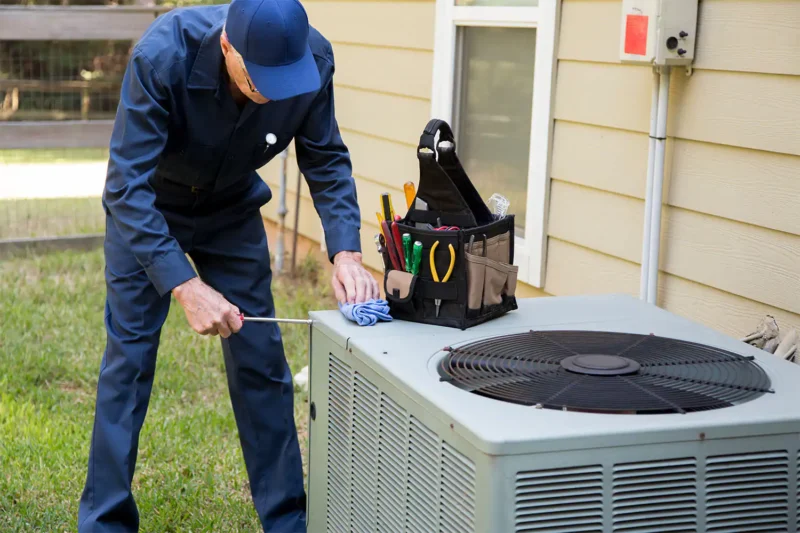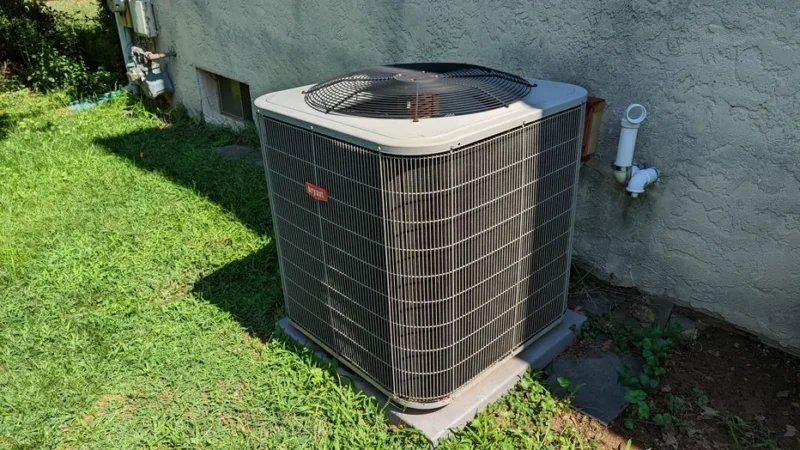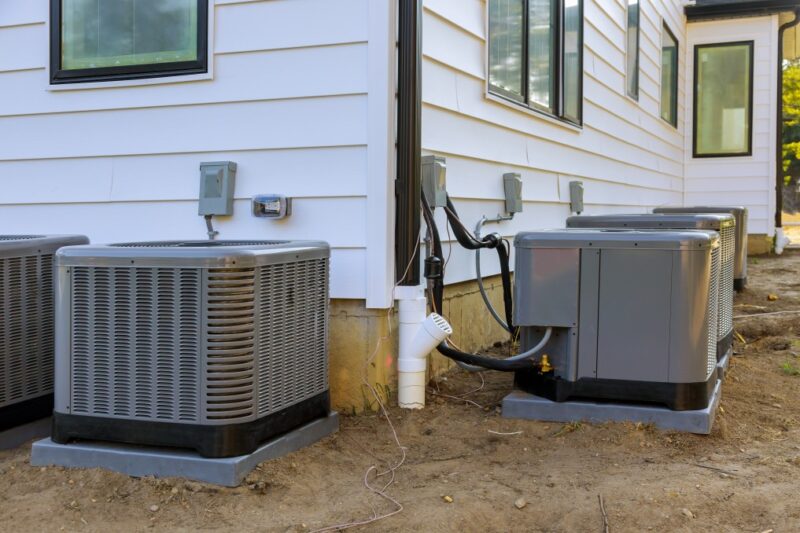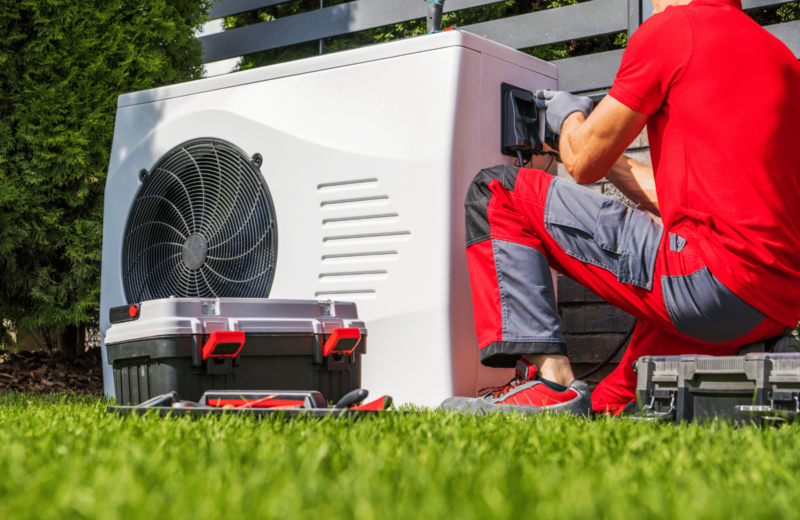One of the best ways to take control of personal finances is to do timely maintenance of the HVAC (heating, ventilation, and air conditioner) system. Home heating and air conditioners claim almost fifty percent of household energy expenditures during peak summer and winter weather, which costs thousands of dollars to replace.
Proper maintenance of the HVAC system ensures an excellent way to save money on the high energy bills that occur every month. Visit this site to get a quote on budget-friendly HVAC maintenance.
Tips To Save Money On HVAC Repairs

Nowadays, many know the importance of a properly functioning HVAC system in a household unit, especially during hot summer and cold winter nights. But only some take HVAC systems for granted and only do timely maintenance once it stops working.
Several things could be done to ensure the HVAC system runs smoothly. Apart from that, timely maintenance is more cost-effective when compared to last-minute breakdown repairs or even replacements. Tips to save money on HVAC Repairs include,
Schedule Professional HVAC Maintenance
Making sure to schedule two HVAC seasonal tune-ups every year is advisable. One schedule should be done during the spring season for the air conditioner and the other during the fall for the heating unit.
The technicians during the maintenance will thoroughly do checkups. They will inspect and troubleshoot the system, ensuring it works effectively and helps prevent breakdowns. The technician will
- Do thermostat calibration and settings.
- Tighten electrical wiring connections.
- All moving parts in the HVAC system will get lubricated.
- Inspect the condensate drain and do relevant cleaning as required.
- Checking all the controls are working correctly in the system
- Will clean and make required adjustments to blower units.
- Clean the evaporator and the condenser coils.
- Check the charge of the refrigerant.
- Check connections from and to the fuel line.
- A thorough inspection of the gas pressure, burner combustion, and heat exchanger is precisely done.
Seal Leaky Ducts
A leaky duct can result in almost 10% loss of energy. Therefore, checking for leaks, stuck dampers separated joints, and blocked registers becomes essential. Since air ducts are the backbone of any HVAC system, sealing the leaks will increase air conditioner capacity.
Changing Filters
Filters help remove hair, dust, and other particles from the air that is circulating indoors, and this helps prevent the spreading of pollutants inside a home. Changing the filter in the HVAC system every month increases the air quality inside the home, which helps the consumption of less energy by the system. A MERV (Minimum Efficiency Reporting Values) rating between seven and thirteen offers an efficient balance in the ability of filtration, which allows maximum airflow.
Visual Inspection Of HVAC Unit

Inspect the HVAC unit monthly while changing the filter, as it helps identify potential problems. Check the thermostat inside and outside the unit, if any. Apart from that, check the following,
- Check the battery status on the thermostat.
- Inspect the condensate system and ensure it is draining correctly.
- Ensure the filter access and cabinet door are adequately closed.
- Ensure the flue system is attached securely and intact.
- Make sure that all registers and returns have been opened and unblocked.
- Check for mold in all the registers.
- Make sure the outdoor unit is fixed on an even level. Ensure to use rot-proof keystone for leveling if needed.
Clean The Vents
If the owner needs to remember the last time the air vents in the system were inspected, it is time to clean them. Continuous usage of the systems will cause pet hair, dirt, grime, mold, and any form of dust to pile up on the covers of the vent.
Thoroughly cleaning these vents will look better on them, and it also helps reduce allergens circulating inside the home which will help the HVAC system efficiently operate without many hassles.
Remove Clutter Around The Unit
Removing the clutter around the indoor HVAC unit helps increase the air quality circulation. If more items are around the unit, more dust will accumulate eventually, finally making its way inside the system through vents.
This clutter around the unit reduces the flow of air circulation, which reduces the system’s efficiency in the long run. It could also become a fire or trip hazard, making it difficult to maintain.
Keep Outdoor Unit Clean

The outdoor HVAC unit can quickly become a collection point for gathering twigs, fallen leaves, grass residue, and other forms of debris. Make sure to remove all the debris around and on the unit, every time the yard maintenance is done, and use a water hose if the dirt accumulates. Trimming the nearby plants to maintain airflow around the unit appropriately is essential.
Regulate Temperature
Ensure to regulate the temperature at home, as maintenance of the HVAC unit includes operating it at a comfortable temperature. It will ensure the system continuously runs for only a short time when the house is empty.
Installing a programmable thermostat helps adjust and regulate the temperatures during day time, which will help run the system less frequently, using less power, increasing its longevity.
Carbon Monoxide Detector
A carbon monoxide detector is essential as it helps provide safety in the house. In case of any leak due to some malfunction, the alarm in the detector helps save lives.
The average lifespan of detector devices is seven years. Make sure to test the device monthly, as it will ensure it works correctly. Change the batteries in the device every six months.
Scrutinize Energy Bills
If any spike or increase in energy bills is noticed even when the usage is the same, then it is a sign of some problem with the HVAC system. Make sure to schedule a visit by the technician, as they will check the system for duct leaks, failing parts, filters, or any other issues.
Conclusion

An HVAC system’s average lifespan is fifteen to twenty-five years, depending on maintenance. Many variables, including the brand, system, and periodic maintenance, could increase or decrease during that period. Ensuring proper care to maintain the heating and cooling system will maximize its life and help maintain higher efficiency over time.

